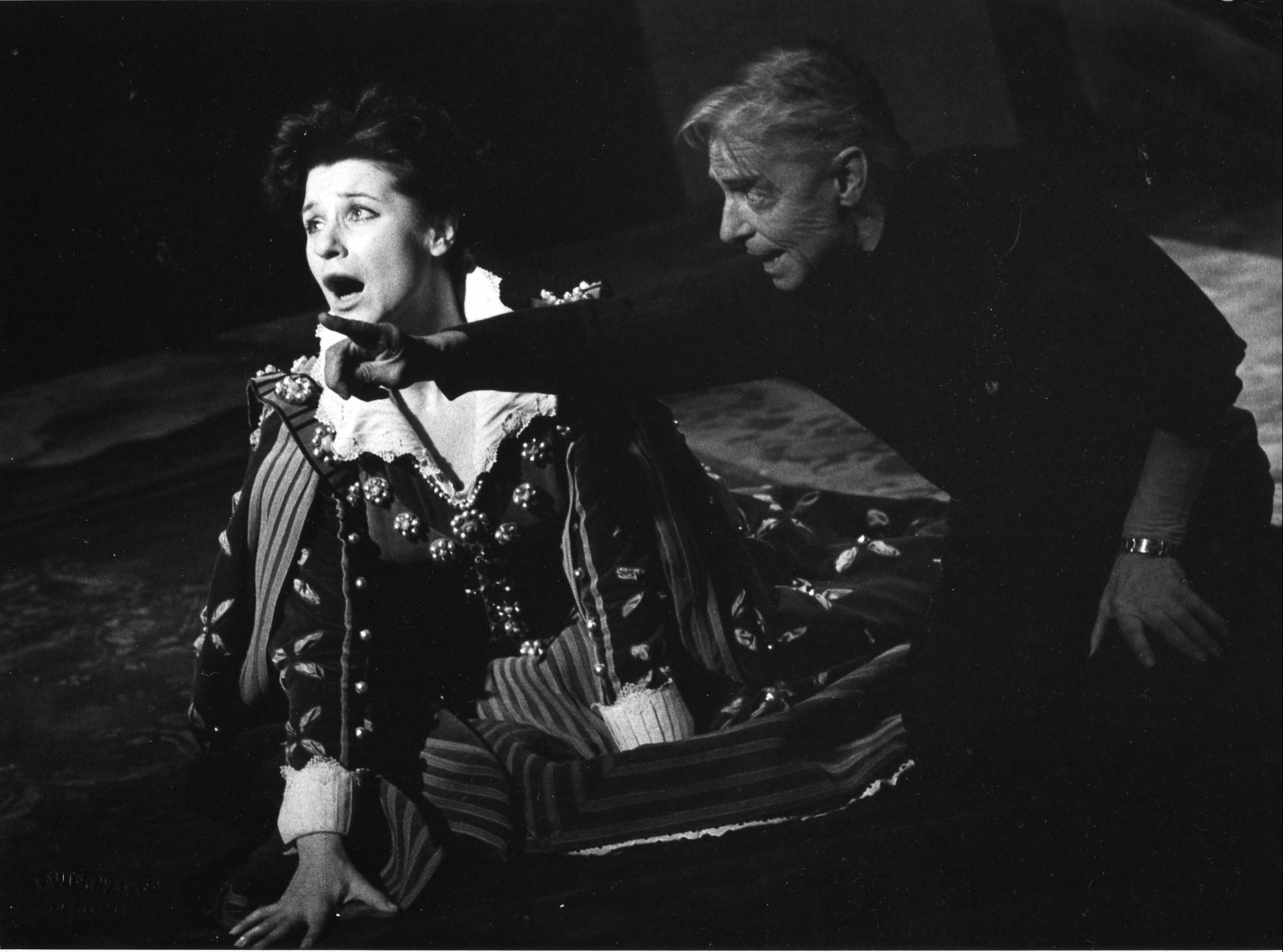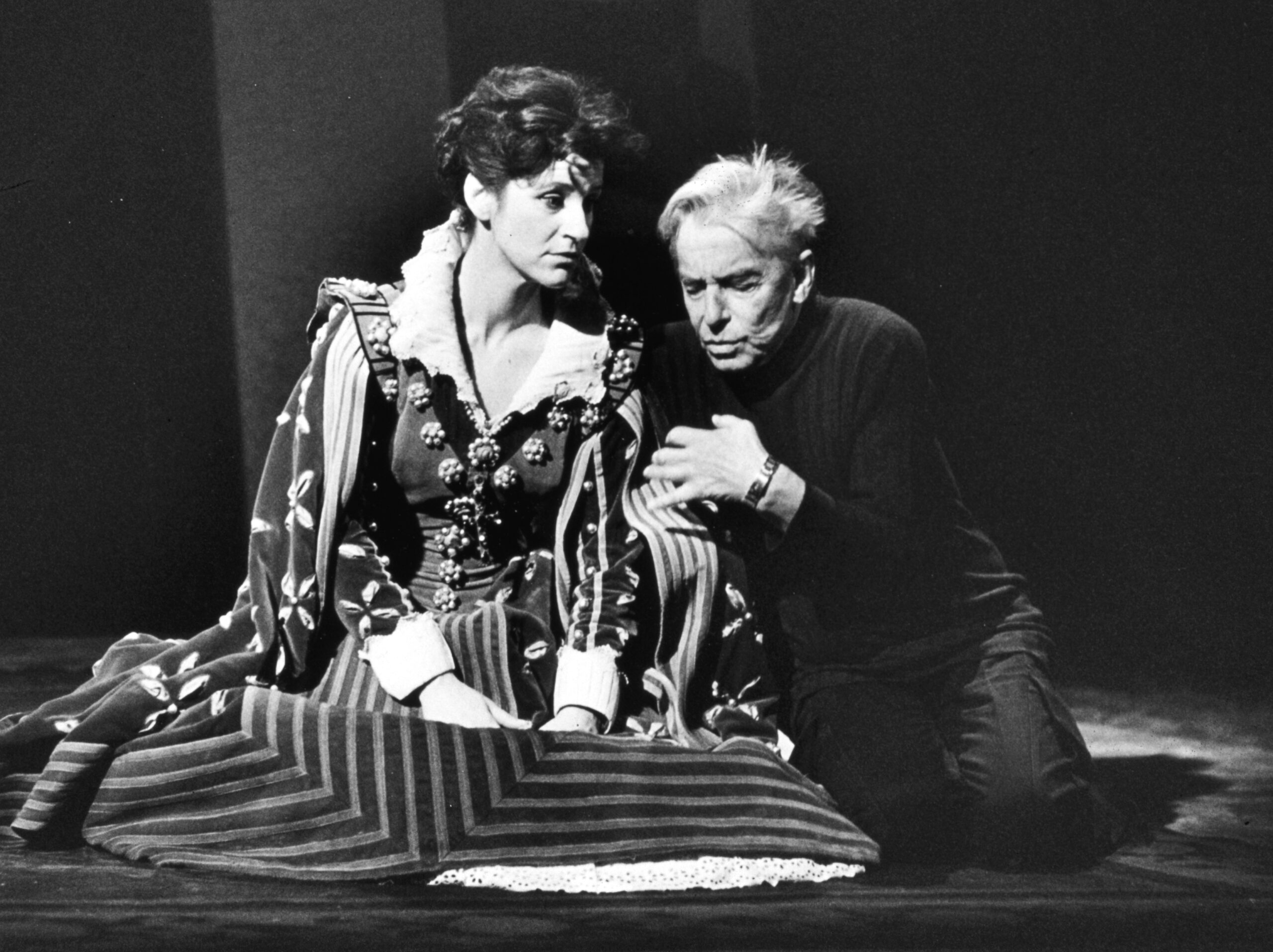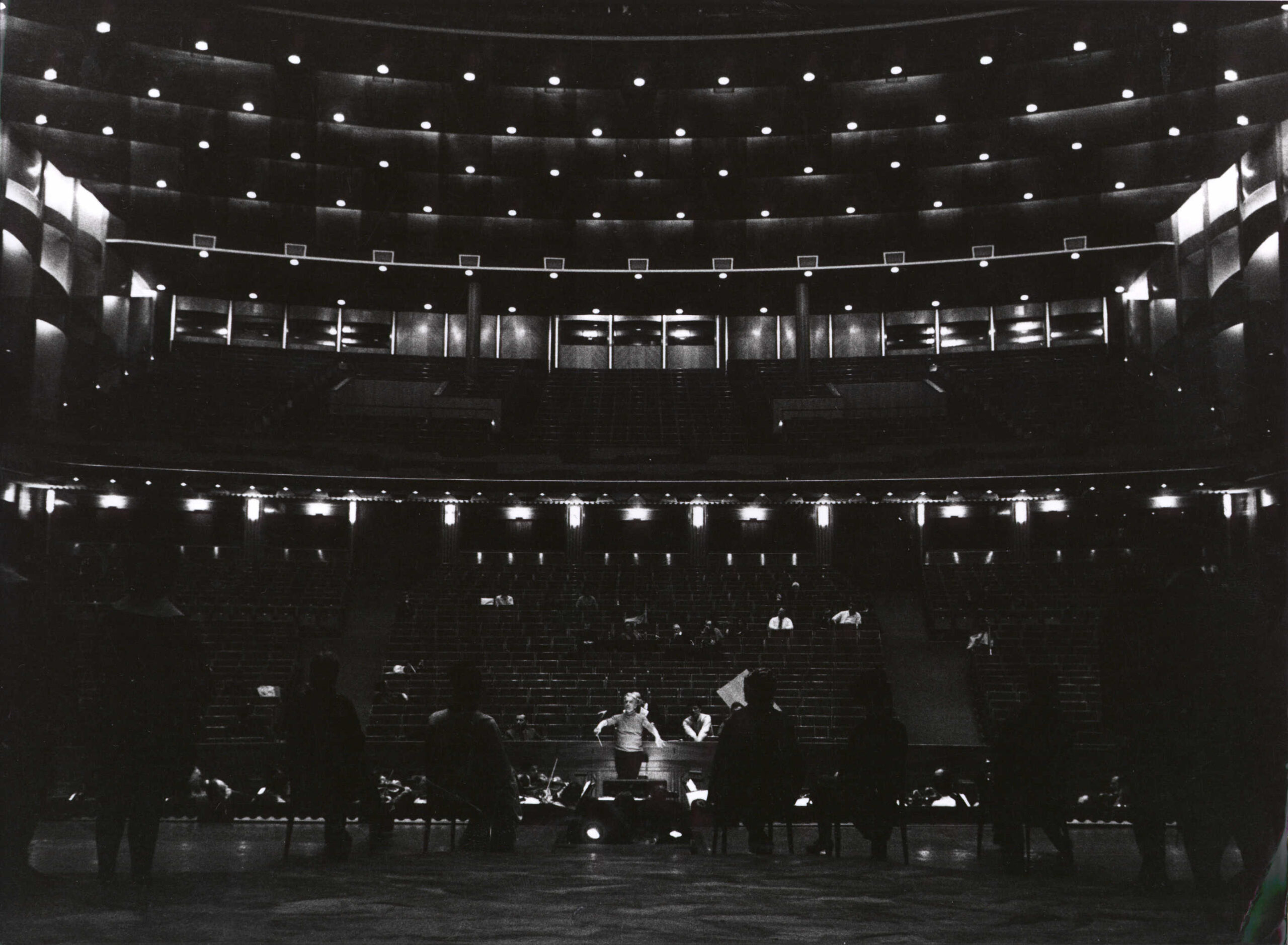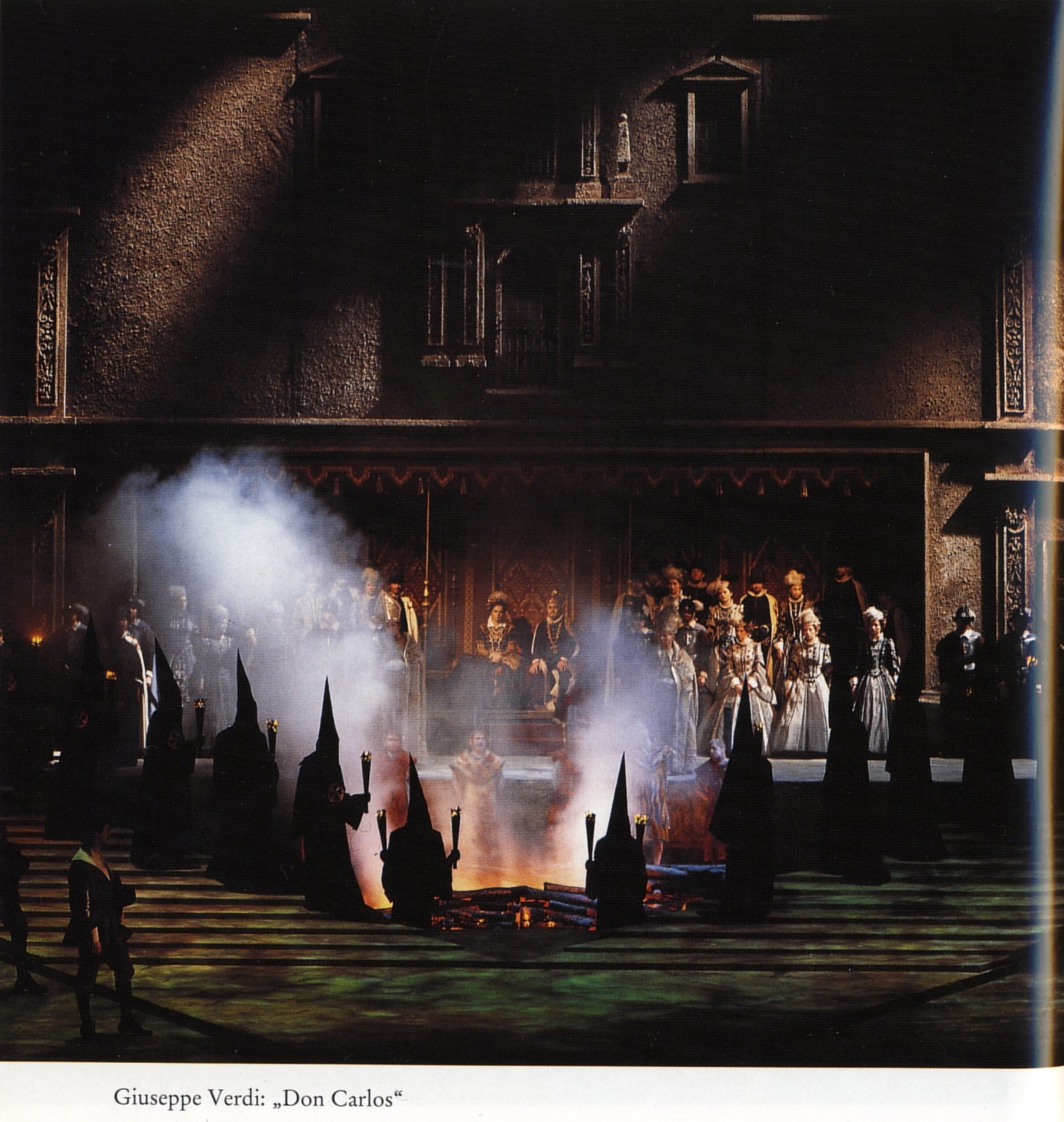24 October 2024
P.R. Jenkins
Spotlight Verdi: “Don Carlo”
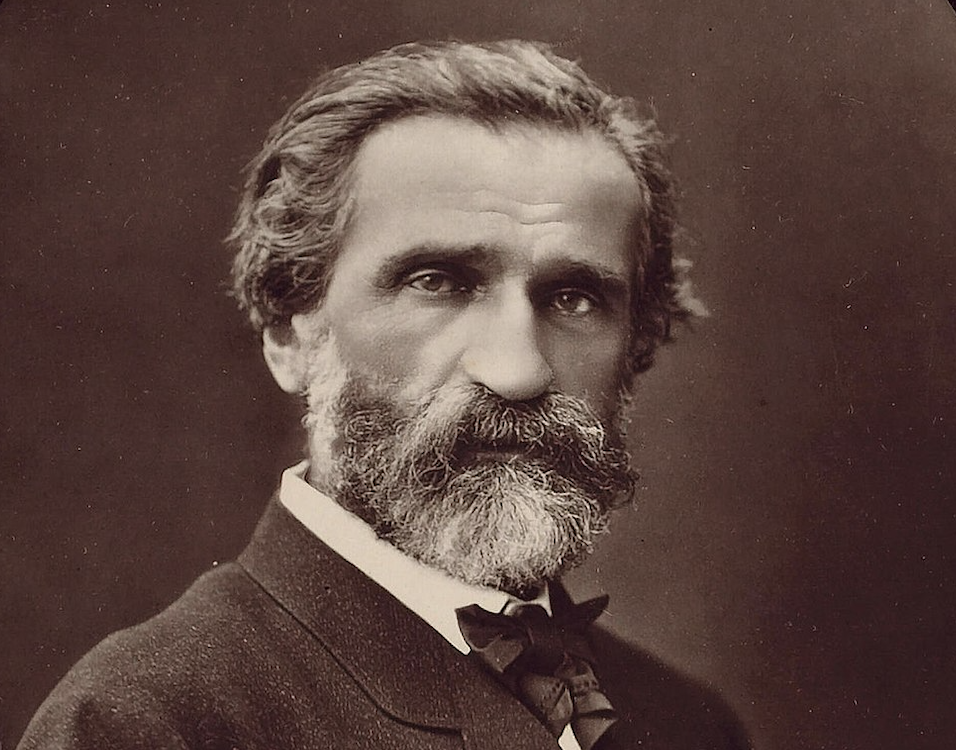
Karajan told Richard Osborne about the repertoire at his first engagement in Ulm: “I was always grateful to Verdi. With twenty-four players and only four first violins, Verdi is still possible. Puccini is a nightmare but Verdi is possible.” Obviously, Karajan was talking about operas from Verdi’s middle period like “Il Trovatore”, “Rigoletto” and “La Traviata” that he conducted in Ulm. Of these, it was only “Il Trovatore” that remained a constantly successful part of his repertoire, but more demanding works by Verdi were added – like “Don Carlo”, the opulent historical opera after Schiller’s eponymous drama. Karajan conducted it for the first time when he was already 50. It was not only a premiere for him but also for the Salzburg Festival where it had never been produced before. There are not many operas of which one could say that they fit perfectly for the Felsenreitschule. “Don Carlo” does and the success was as great as it was unexpected for many visitors and critics. In conjunction with Gustaf Gründgens, one of the most famous German theatre directors, Karajan created “the non plus ultra concerning ‘Don Carlo’” (klassik.com) supported by a superb cast. Sena Jurinac (Elisabetta) Giulietta Simionato (Eboli), Cesare Siepi (Philipp II) and Eugenio Fernandi (Don Carlo) were praised as ideal interpreters. Erik Werba wrote:
“With the realisation of this Verdi opera on 26 July 1958, Karajan has reached his full stature as a conductor. The achievement was so extraordinary in its incomparable capacity that a normal audience is hardly able to realise it.”
The second production of “Don Carlo” with Karajan conducting and directing started in 1975 and was performed over eleven years. Until 1978, it was done 21 times exclusively at the Salzburg Festival. The original cast featured Domingo, Freni, Ludwig, Cappuccilli, Ghiaurov in the main parts.
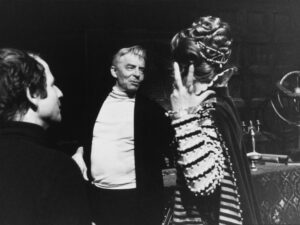
The Vienna Philharmonic violinist Clemens Hellsberg recalled in an interview with our institute:
“I remember, a few days after the premiere, we had a rehearsal with Karajan for a concert [the Verdi Requiem]. He came, we applauded and he thanked us for the premiere. Then he said: ‘You were listening to the most beautiful voices in the world.’ And it was true. It was superior also in terms of the singer’s personalities. The music was shaped perfectly. We played the Italian version. From the very beginning with the horn to the end with the mysterious monk it was a ‘Gesamtkunstwerk’ in an ideal way. The ensemble playing was so effortless that you got the impression everything happened at the same time and time stood still. You couldn’t say, is it three and a half hours or is it only a single moment. It felt like, yes, like perfection.”
In the following year, José Carreras took over for Domingo, had a thrilling debut under Karajan’s baton and performed the part up to 1986. “Don Carlo” remained constantly in the repertoire of the Salzburg Festival and the Easter Festival in the seasons 1977, 1978 and 1979. In 1979, the production was also presented at the Vienna State Opera during Karajan’s “Festival Weeks” that had been installed in 1977 when he returned after thirteen years absence. Karajan’s biographer Peter Uehling remarks that “Don Carlo” was planned to be broadcast live for television at the State Opera in 1980 but the project failed because of controversies about the singer’s contracts. The opera was only filmed in 1986 with Carreras, Cappuccilli, Furlanetto, Baltsa and Fiamma Izzo d’Amico. The film was criticised for the age of the male leads – Furlanetto (Philipp) was younger than Carreras (Carlo), and Cappuccilli (Posa) was twenty years older than Furlanetto. The studio recording with Carreras, Cappuccilli, Ghiaurov, Freni and Baltsa dates from 1978.
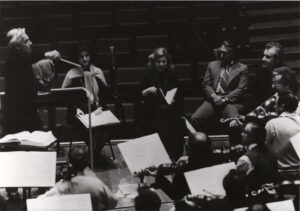
About a live recording from the State Opera on 6 May 1979 with almost the same cast Gramophone wrote:
— P.R. Jenkins“Karajan galvanises the orchestra, the singers sound as if they are listening to one another and there are some beautifully floated soft phrases.”
“Conversations with Karajan” Edited with an Introduction by Richard Osborne. Oxford University Press. 1989
Erik Werba in Salzburger Volkszeitung
Peter Uehling: “Karajan. Eine Biographie” Rowohlt, Reinbek bei Hamburg. 2006


